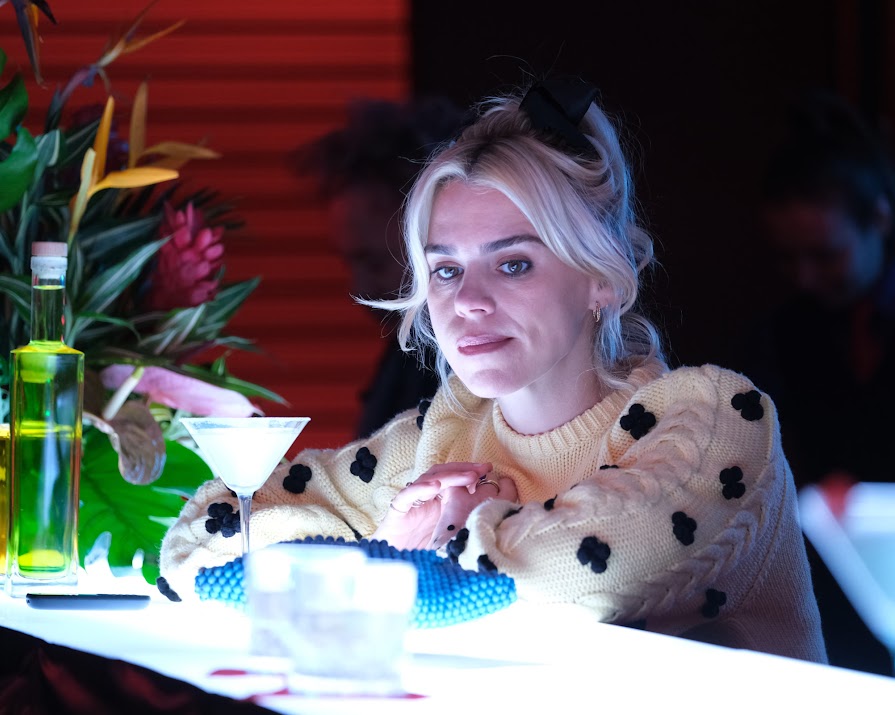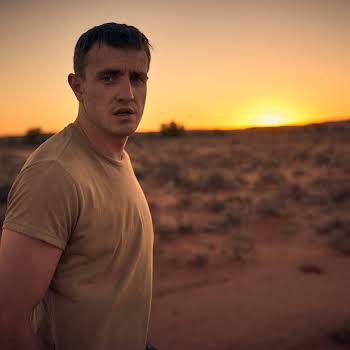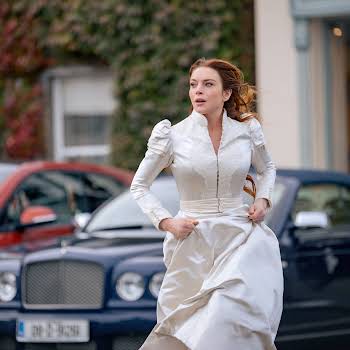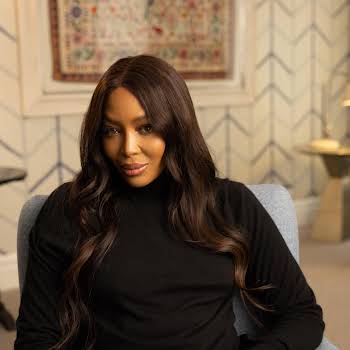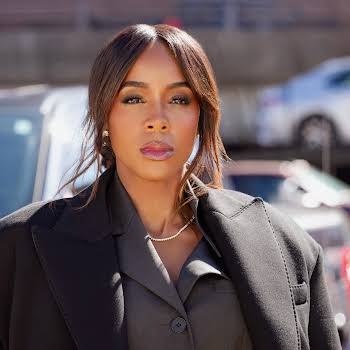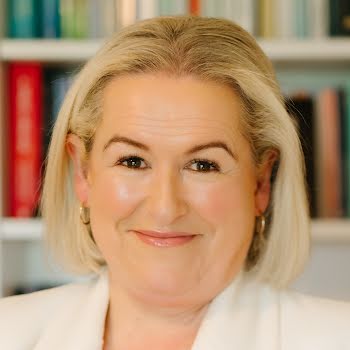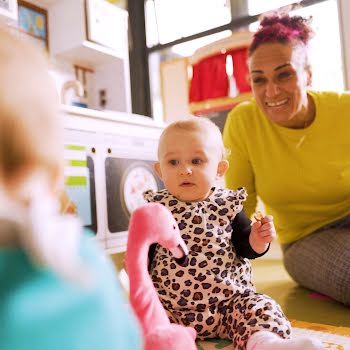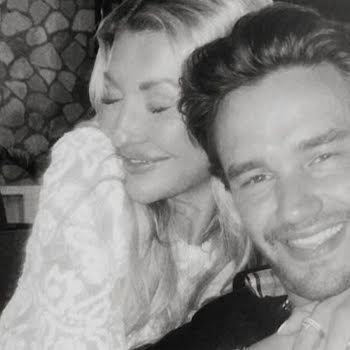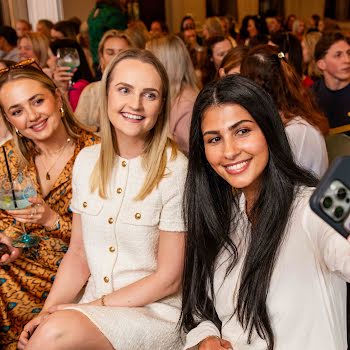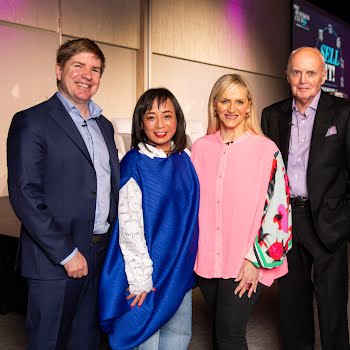
Sponsored
Lucy Prebble, co-creator of I Hate Suzie: ‘There is a gap. We are missing honest, female-led stories’
Sponsored By

By Dominique McMullan
08th Sep 2020
08th Sep 2020
Sponsored By

IMAGE Editorial Director, Dominique McMullan sits down with Lucy Prebble, co-creator of new Sky original I Hate Suzie, to hear all about the show, her influences, and working process. I Hate Suzie is available to watch now on Sky Atlantic.
I Hate Suzie is a bold and edgy drama about the moment a mask slips and a woman’s life unravels. Starring Billie Piper, the series follows Suzie Pickles, a former teen pop star-turned-actor, who has her existence flipped when her phone is hacked and compromising photos are leaked. It’s a witty and keenly observed take on what it means to be a woman, and it’s on course to be your new obsession.
It is written by the fabulous playwright and screenwriter Lucy Prebble, who I the pleasure of sitting down with recently.
DOMINIQUE: Lucy, you’ve worked with Billie Piper, the star of I Hate Suzie, many times. Tell us about your relationship and what it is about her that draws you to her as an actor?
LUCY: I first met Billie more than 15 years ago on Secret Diary of a Call Girl. At the end of it, Billie was kind and brave enough to come over to me and say “Can we be real friends?” In an insincere but professional way, I agreed. She looked at me then, and said, “No, I really mean it”. “Gosh”, I thought, “that is very brave and beautiful”, and so I agreed. And we have been best friends ever since.
That story is a good illustration of one of the many reasons I really like working with her; she is incredibly open and able to channel a full spectrum of emotions very truthfully. She is brave enough to be honest. That made it easier for me to write the part of Suzie for her. I trusted her and I knew she would understand the emotions I wanted to explore.
How do you and Billie work together? Did you have a process?
Originally we just hung out and chatted. We went for drinks and just talked. When it got more serious we hired a room in London and every day for six weeks we went in and put story ideas up on the walls and started to plan episodes. We would pitch ideas to each other. Often we would try to make each other laugh. It’s a useful tool when you write, to remember what makes you laugh, and to try and turn away from what you think is funny because you have seen it on TV or in comedy.
Register for our free virtual event with Tara Stewart, Daniella Moyles and Erica Cody to celebrate the launch of I Hate Suzie, on September 9
Much of I Hate Suzie’s power lies in the way it plays on Billie’s already-defined status as a pop-star turned actor. Why or how did you decide to go with this format?
I am interested in how many people think of that reference as in-joke. I have always thought about it differently. I wanted to explore quite a lot of themes and concepts in I Hate Suzie. Using what the public already knew about Billie was a quick way to introduce the character, so we could get right into the storyline. Viewers are used to seeing first episodes that introduce you to everyone, the storyline, the supporting characters etc. It’s a bit tiresome and it can begin to feel a bit dry. You don’t experience life like that. So although it seems like an in-joke I was really trying to do the opposite, and bring everybody in, quickly, to this woman’s reality.
I think you succeeded there. It was like an in-joke that everyone was in on. The series is a very real look at the underbelly of fame, and the way it both bestows power and then takes it away. Was that your intention?
Yes. Interestingly, we talked so much more about femaleness, and being a woman, a wife and a mother. We realised that fame is a really good metaphor for all those things. The character of Suzie becomes famous at the age of 15 from a talent show. This thing happens to girls at a certain age, famous or not, when suddenly they are public property because they are becoming ‘attractive’ in the eyes of cultural patriarchy. And then you get older and the whole world starts to go, “Oh no, not you anymore, not you”. That’s an experience a lot of women can relate to. And it is not dissimilar to the experience of fame. One minute you are ‘hot’ and everyone wants you, and then next you are done.

You went to various channels with the show before it got picked up. You said that the attitude of broadcasters towards ‘I Hate Suzie’ hinted at deep-rooted problems in the industry. Can you talk to me a little more about that?
When we were first coming up with the show, Billie and I were amusingly arrogant. I was under the impression that because I had this best friend, who was one of the best actors I knew and that we had written a really, really good show with her in it; we had a pretty good proposition. But it doesn’t work like that. All of these channels have their own development process, and people employed to create shows. They’re not that happy with you turning up with something already written and selling it to them. It disempowers them massively.
Alongside this, there have been a lot of women commissioned in the last few years, particularly after the Me Too movement. There was a feeling that the ‘woman having a breakdown’ show was already done. With my producer hat on, I understand that. They are looking at their whole slate and trying to balance. But it makes me want to respond, “Well what about your ‘Man doing a crime’ show?” That’s not considered to be over and done with and that is half of TV.
I really need to shout out to Ann Mensah who ran Sky Atlantic. She commissioned the show and supported us from the very beginning. Without Ann, the show wouldn’t have happened.
Register for our free virtual event with Tara Stewart, Daniella Moyles and Erica Cody to celebrate the launch of I Hate Suzie, on September 9
Until very recently, we rarely saw flawed, messy, and nuanced female characters on TV. Throughout your career, you have written honest female characters. Can you talk to us about why that is important to you?
I think honest is the key word there. There are these gaps in our cultural knowledge. We are missing female stories; we are missing stories and representations of people from different ethnic or class backgrounds. There is a massive amount of art and literature about a particular section of society. The positive way of looking at this is that there is a gap to start telling stories from a very fresh place.
I ask myself, what do I experience all the time in life, that I never see represented in art? I ask myself, what do I know it true and real, but I never really see reflected? If you are a woman, and even more so if you are a woman of colour or a woman from a different class or background, then you have access to this wealth of experience that is new and original. I have a feeling that the ways we tell stories will change, the more we let different kinds of people, tell different kinds of stories.
It must be a really exciting time to be a screenwriter?
Yes, although if I am honest, we were editing right up until the last minute on I Hate Suzie. And then so many people just watched it over the weekend, because it all drops together, which is brilliant of course. But it is this strange whiplash feeling too. You have spent four years working on something and then it’s just over. So yes it’s exciting, but I would be lying if I said I had a million ideas that were all going to happen now. I feel tired… I need a lie down!
Well, I hope you are taking a very well deserved break.
The series touches on what it means to be a woman in her thirties, and all the anxiety and big decisions that come along with that. As a woman in her thirties, firstly, thank you for that accurate representation. Can you talk to me a little about how you decided to represent that age group in that way?
You’re so welcome! Billie and I are both in our thirties. We found it to be an incredibly stressful and dramatic decade. Your thirties seem to be a time when everything comes home to roost, and women are running around freaking out a bit. There are a lot of TV shows about women in their twenties, but your twenties are relatively low stakes. It’s the decade where you are supposed to mess up. Your thirties on the other hand, for biological and cultural reasons, are often tremendously complicated and high stakes for women. I don’t think men experience their thirties in the same way.

There are some truly excruciating moments in I Hate Suzie. How do you begin planning and then filming moments like that?
That’s a really good question. Billie and I were very interested in looking at anxiety. We are both quite anxious people and I also think anxiety is a bit of an epidemic. Anxious people tend to be over alert and over vigilant. I was interested in writing a character like that. The bigger the gap between who you pretend to be and who you are, the higher levels of anxiety, I think. When you are watching the series, you know what Suzie is really feeling, but you watch her do something else. So you get this awful feeling “No, no, no” feeling. I think that is what you are describing.
The shoot itself had a very tight budget, with a tight turnaround time. We shot in a small house with low ceilings and the film crew, all these massive blokes, were just banging their heads all the time and taking up too much room. The atmosphere was like a pressure cooker, which was helpful, and that finds its way onto the screen.
Did you always want to be a writer?
I was a passionate reader and I always wrote bad stories, poems and songs when I was a child and teenager. I’ve always written but I didn’t know it was a job you could have when I was young. I did a lot of temping after university, and then I started applying for secretarial jobs in the creative arts. I ended up working in theatre and that was when I realised that all these jobs exist. So I wanted in. I gave myself a year to write and if I hadn’t anything professional in that time I was going to become a lawyer.
I can see you being a lawyer.
Haha, I’ll take that as a compliment.
Who are your biggest influences when you write?
I try to write from a place that I haven’t seen before, so that means influence is a bit of a complex term. But I was always really taken with women who were writing and very public. People like Dorothy Parker, Mae West, Nora Ephron or Joan Didion. And I love Elaine May. Those women were funny and they weren’t hiding their ‘womanness’. They were feminine and sexy, and they were writers. That always inspired me.
I was going to ask you if you are currently working on anything new, but having heard about the run up to I Hate Suzie’s release, I am going to leave that question out!
Oh thank you! I love that you are not asking me that! I am taking time for me now.
All eight episodes of I Hate Suzie are available to watch right now on Sky Atlantic.
Read more: Shock, Denial, Fear: I thought my life was over when my photos were leaked
Read more: Shame, Bargaining, Guilt: I internalised the guilt when my intimate photos were released
Read more: Why I relate to Suzie from ‘I Hate Suzie’ so much – and nothing as devastating as a nude photo hack has happened to me
Join us on September 9 for a virtual event discussing Exposed Emotions to celebrate the launch of I Hate Suzie. Tara Stewart, Erica Cody and Daniella Moyles will be in conversation with IMAGE Editorial Director Dominique McMullan. Register for free now.











